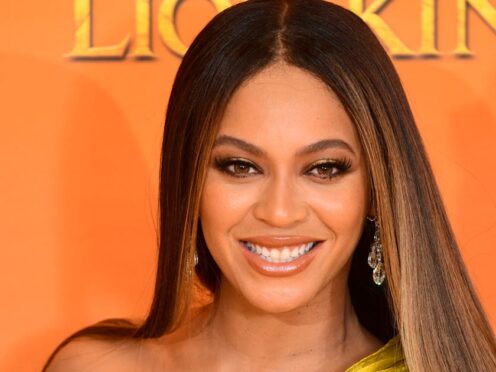Beyonce will replace an offensive term used in her song Heated which prompted a backlash from some fans and a UK disability charity.
The track features on the American singer-songwriter’s highly-anticipated seventh studio album, Renaissance, which was released last week.
Representatives for the 40-year-old confirmed the word, which was “not used intentionally in a harmful manner”, will be replaced in Heated, which was co-written by Canadian rapper Drake, and includes an ableist slur which is used twice toward the end of the song.
In a statement to the PA news agency, a spokesperson for Beyonce said: “The word, not used intentionally in a harmful manner, will be replaced in the lyrics.”
Here we are again.
Not long after ableist language from Lizzo, Beyoncé’s new album features an ableist slur not once, but twice.
Disabled people’s experiences are not fodder for song lyrics. This must stop.https://t.co/UJXrJxdtXf
— Scope (@scope) August 1, 2022
The term is sometimes used to refer to individuals with cerebral palsy, a condition which affects sufferers’ muscle co-ordination.
Prior to Beyonce’s decision to replace the use of the offensive term, disability equality charity Scope spoke out against her use of the word, less than a month after it did the same for American singer-songwriter Lizzo.
The charity’s media manager Warren Kirwan said: “It’s appalling that one of the world’s biggest stars has chosen to include this deeply-offensive term.
“Just weeks ago, Lizzo received a huge backlash from fans who felt hurt and let down after she used the same abhorrent language.”
He added: “Words matter because they reinforce the negative attitudes disabled people face every day and which impact on every aspect of disabled people’s lives.
“Beyonce has long been a champion of inclusivity and equality, so we’d urge her to remove this offensive lyric.”
— FOLLOW @YITTY (@lizzo) June 13, 2022
Lizzo re-released her song Grrrls with a “lyric change” and issued a statement apologising after facing criticism for her use of the same word.
The pop superstar, who is known for promoting body positivity and self-love in her music, said she “never want(s) to promote derogatory language” and she is “dedicated to being part of the change I’ve been waiting to see in the world”.
Following the release of Renaissance, Beyonce fans, colloquially known as the Beyhive, said the album was “made with the LGBT community in mind” as they shared their initial thoughts on the new release.
